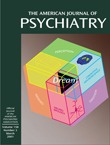Dr. Klin and Colleagues Reply
To the Editor: Dr. Weintrob’s letter raises several issues. First, is it in the child’s (or family’s) interest to be told the diagnosis? Second, should the results of the MRI be shared? By implication, Dr. Weintrob suggests that the nature of Asperger’s syndrome as a “disorder” may be questionable.
There appears to be some confusion as to what was discussed with the child and what was discussed with the parents; these discussions were not the same. Clinical judgment and sensitivity are always required and must encompass various factors. In talking with children, we hope to help them understand their strengths as well as their weaknesses; this promotes self-understanding, can motivate children, and validates their own experiences (1). The use of a specific label may or may not be indicated. Often children like “Robert” have been aware of their difficulties and pained by them for many years, and it may come as a relief to feel that others share similar problems and have coped with them. “Robert’s” mother responded to Dr. Weintrob’s letter as follows:
“As the parent of the child discussed I am confident that he is much happier today than if we had remained unaware of his condition. Before the diagnosis, his social and adaptive disabilities made it almost impossible to endure school, and he began to show signs of depression. After having failed several professional interventions, a desperate search for information led us to the Yale Child Study Center. We learned that individuals with Asperger Syndrome can have great accomplishments and fulfilling lives. The label opened doors to services not previously available, including a special nonpublic school. The diagnosis made him realize that his problems were not his fault. Understanding his strengths and weaknesses, and a cognitive approach to the basic social skills has, in his words, helped him change his attitude. Since the case was written, my son has transitioned back to public middle school, is performing at the top of his class academically, is a member of the marching band, and is a happy young man. Of course he still has Asperger Syndrome, but I do believe that he has been done a favor.”
Parents have a right to know facts of importance related to their children. In this case, the child and his family had come to us for clinical assessment and also had participated in research. In this regard, even possibly relevant results should be shared with parents; this is particularly important given the growing body of work on the neural bases of social disability.
By definition, Asperger’s disorder is a condition characterized by severe difficulties in social interaction and is a source of impairment or distress. Dr. Weintrob’s speculation that the child had made “a rather good adaptation” to his difficulties is not correct. It is often the case that teachers and clinicians may be overly impressed by the child’s cognitive assets while ignoring both their limitations and severe difficulties.
1. Klin A, Volkmar FR: Treatment and intervention guidelines for individuals with Asperger syndrome, in Asperger Syndrome. Edited by Klin A, Volkmar FR, Sparrow SS. New York, Guilford Press, 2000, pp 360–366Google Scholar



